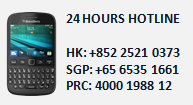Pollution
French flag down panamax
A Diamlemos-controlled panamax has been stopped by French authorities on suspicion of pollution.
French press reports say the 74,500-dwt Captain Diamantis (built 2000) was spotted on Wednesday southwest of Brittany trailing an oily wake 2.8 kilometres long and 30 metres wide.
Coastguard officials observing from a Falcon 50 reconnaisance plane alerted surface authorities.
Prosecutor Francois Nicot ordered the vessel diverted and the master is said to have yielded to instructions from naval officials to proceed to the port of Brest this morning.
Last year France established three regional centres for prosecution of marine pollution at Marseilles , Brest and Le Havre . Authorities have been aggressive ever since in tracking down polluters, diverting them to port and prosecuting them. To cover fines that may be assessed after court proceedings have been held, guarantees in the quarter-million euro range are demanded before the vessels are allowed to sail.
A portion of the fine is typically assessed the master of a ship in case of a conviction.
London-based Greek owner Diamantis Lemos controls a modern fleet of six panama bulkers and two medium-range products tankers with two more under construction.
Captain Diamantis is a stand-out among ships stopped in the campaign to date.
Merchant vessels that have been stung by the French airborne spotters include the 4,400-cbm LPG carrier Gitta Kosan (built 1990), the 3,500-dwt general cargoship Pantokratoras (built 1982), the 6,600-dwt general cargoship TK Venice (built 1985), the 293,000-cbf reefer Nova Hollandia (built 1983) and the 10,000-dwt multipurpose vessel Dobrudja (built 1987).
Far East recent trends
Recent experience has shown unwelcome trends apparently developing in the approach to pollution incidents in China and Vietnam resulting from collisions. These trends involve an increasing requirement for cash security, and the requirement for security from the non-polluting vessel.
In one case, two ships collided in fog, some 60 miles off Shanghai. A cargo tank of one ship was ruptured spilling about 600 tonnes of styrene monomer into the sea. The nature of styrene monomer is such that it evaporates quickly leaving little or no trace of any residue and little evidence of pollution damage. Evaporation can be assisted by high pressure hosing, as well as by the normal action of wind and waves.
The Chinese authorities saw this as a serious pollution incident and detained both ships, initially demanding cash and irrevocable letters of credit for several millions of dollars as security. Whilst negotiations succeeded in persuading the authorities to accept conventional security (rather than letters of credit), the demand for cash was maintained. Both vessels had to provide substantial amounts of cash security.
To make matters worse, the total amount of security sought appeared to be disproportionate to the spillage, but negotiations failed to produce any realistic breakdown of the amount sought or a reduction, notwithstanding the efforts of the Club's lawyers. The ships were delayed for several weeks while security arrangements were finalised.
Another collision in Dalian produced a similar reaction by the local authorities, although in this case the pollution was more evident, being marine diesel from a ruptured bunker tank. The two ships were delayed for several weeks while both shipowners (not just the owners of the polluting vessel) were forced to provide substantial security, including a substantial proportion in cash.
In Vietnam, two tankers collided causing a spillage of gas oil. The authorities demanded cash and security from the non-polluting vessel, which was immediately deemed to have caused the collision. Again, delays were incurred pending the provision of security totalling many millions of dollars.
In all cases legal opinions were sought on whether it would be possible to challenge the requirement for cash, the requirement for security from the non-polluting vessel and the amount of security demanded. Lawyers indicated that although these issues could be challenged in Court, resolution would take several months and it was not possible to predict the Court's decision. The ships would have had to remain detained during this time. The prospect of delay, and an uncertain outcome, meant that these demands could not be effectively challenged.
The hardline position taken by the Chinese authorities may be the result of the Marine Environmental Protection law which came into force on 1 April 2000 and seeks to strengthen pollution measures.
Although the Club fully recognises the seriousness of marine pollution, nonetheless, it should be possible for security to be provided for legitimate claims in a manner which does not involve disproportionate delay, and in a form which does not impose unreasonable burdens on those against whom claims are made. In light of these developments, Members should be aware that any pollution incident of substance in either China or Vietnam may give rise to difficulties that result in delay.





